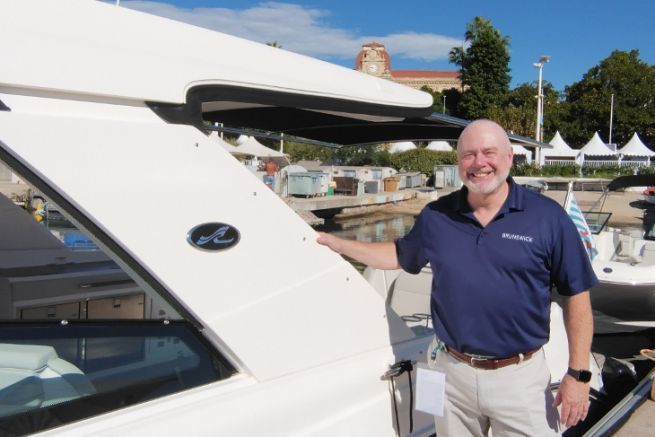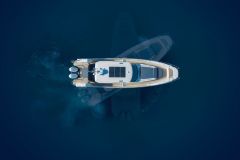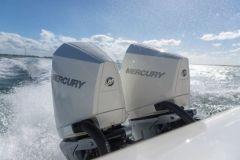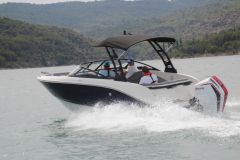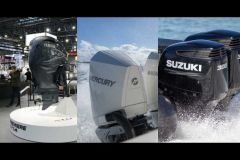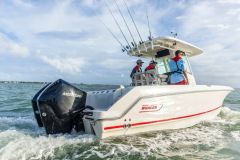On the occasion of the Cannes Yachting Festival 2022, Dave Foulkes, head of the Brunswick Group, which includes Mercury Marine, Navico, Mastervolt, Boston Whaler, Sea Ray and other big names in the yachting industry, kindly answered our questions.
Where do you see the Brunswick Group in 2032?
We have already defined a plan to 2025 which outlines the main lines.
For Mercury Marine, I would say that we will continue to develop innovative products and gain market share, with new products and new technologies. In particular, there is our electric range, and we will continue to improve our performance on conventional engines.
For the Navico Group, there will always be more advances in electronics and electricity. LiOn batteries are taking up more and more space and replacing generators. We will have a hybrid system, as is also being developed for recreational vehicles with the "zero-idle". Navico Group is also about autonomous boats. Our docking system is scheduled for release in late 2022. The challenge is to make these technologies robust.
Boats account for only 20 percent of Mercury's earnings. But it's hard to do boats and propulsion separately. The 17 brands of the Boat Group are interesting to work closely with Mercury and Navico and introduce new products.
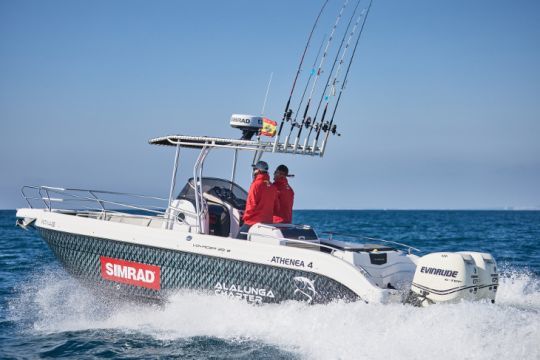
Do you envisage a more direct distribution, after the creation of Navico Group?
We already sell through our own channels, through digital platforms, and through large distributors like Amazon or Wallmart in the United States for simple products. But we don't think we have our own distributors. The question is where we bring value to the customer and where we make money.
What about services?
The Freedom Boat Club is growing rapidly with 320 locations in the U.S. and more than 30 in Europe. It's an interesting tool for the transition to electric power, because the boats are centralized at a base. We can have the charging tools and power for a series of boats, which is more difficult for individual boaters.
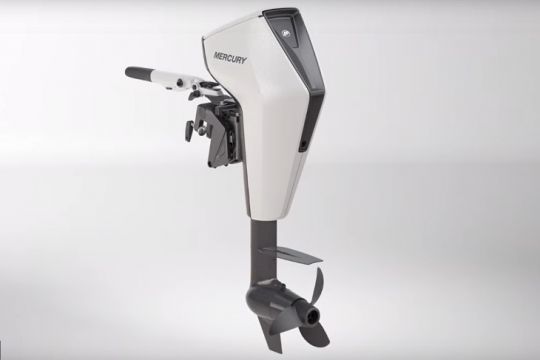
How do you see the development of the electric boat in 2030, and the market players?
Today, this represents less than 1% in the United States, compared to 5-10% for light travel. I think we'll reach 10% by 2030 in niche countries. But there is still a price issue. On average, the boats we sell cost less than $50,000. That's a tough budget to meet in electric.
Today, there are a lot of high-voltage trials, but the big players are not making money. That's not healthy. We have to find a way to be viable.
How do you see the boat club evolving?
We are thinking of many solutions without ownership of the boat. The yachtsman is very protective of his boat, so we can't go very far. It's not a question of price. The average American boater is 51 years old. The Freedom Boat Club member is 3 years younger and on average wealthier. It's more a question of availability.
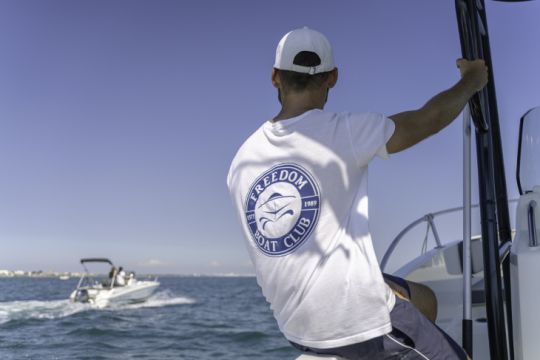
What are the efforts in sustainable development apart from electric?
We are aiming for neutrality by the mid-2030s. The first point is that two-thirds of our boats are made of aluminum and small, so they are easy to recycle. For fiberglass, we are working with Arkema on an Elium Boston Whaler, which is 100% recyclable

